By Julia Arreaga
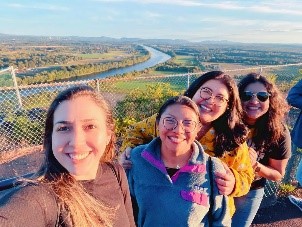 From the moment we applied to the Professional Fellows Program, expectations have been high (on both sides), and the excitement has only increased. Since the first week, which included some training sessions and cultural immersion activities, I have been in awe of all the amazing things people are doing to improve their communities and their countries. Every fellow is doing something, something to transform the world, be it on an individual or global scale.
From the moment we applied to the Professional Fellows Program, expectations have been high (on both sides), and the excitement has only increased. Since the first week, which included some training sessions and cultural immersion activities, I have been in awe of all the amazing things people are doing to improve their communities and their countries. Every fellow is doing something, something to transform the world, be it on an individual or global scale.
As we travelled to our host organizations and settled in, the feeling of awe grew. Volunteers, interns, and staff from my host organization are so devoted to making other people’s lives better. I was placed along with another fellow at Casa Alitas Welcome Center in Tucson, Arizona, which, as stated on their website, “is a humanitarian aid project committed to providing assistance to asylum-seekers released from ICE and Border Patrol detention into our community”.
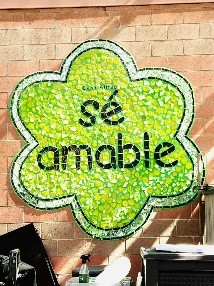
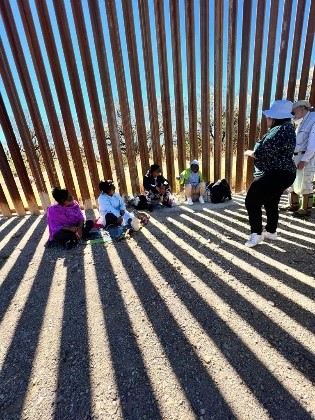
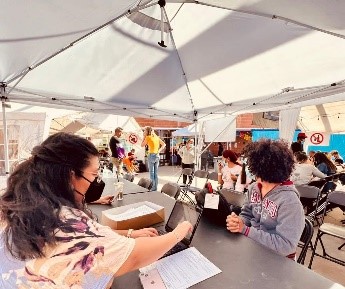
I have experienced both joy and heartbreak so many times these past four weeks while listening to the stories of struggle and resilience from the people we are serving and watching volunteers and staff going out of their way to facilitate transportation, assist with communication, reunite families, and provide personalized aid to people. It is heartwarming and at the same time eye opening. As I have had the chance to sit and listen to some of the most painful and traumatic stories, I’ve wondered: what if someone in their communities could have done something? What if people serving others, going out of their way to make someone’s world better, wasn’t something exceptional but a daily occurrence?
I understand migration is a complex matter; even though it has been happening since humankind’s beginnings, there are many root causes that we are just beginning to understand. My previous experiences had given me just a glimpse of what I am learning and understanding here. An important part of this experience has been learning more about the causes of migration and how to support one another, as well as seeing individuals, families, communities, and organizations rise for those who have the need to migrate.
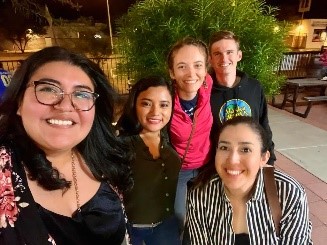
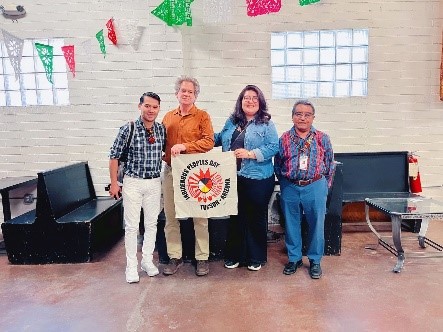
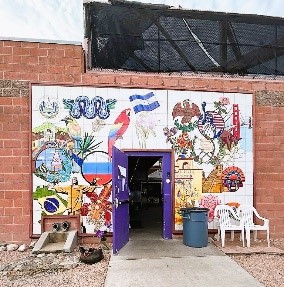
The more people I meet here -whether they be other fellows’ hosts, volunteers from different organizations, or even people at the local churches I’ve visited- the more I see how there is a very strong community approach here, people looking after each other and filling in the gaps, not one person doing everything but everyone doing something. Whether it is housing projects for young adults aging out of the system (I Am You 360) or advocating for indigenous populations who are migrating (Alianza Indigena Sin Fronteras) or doing “water drops” and aiding people crossing the desert (Tucson Samaritans) or starting the Sanctuary Movement in North America (Southside Presbyterian Church), every initiative started with someone doing something and then being joined by others who wanted to help.
When I hear the phrase “No one can do everything, but everyone can do something”, I think of the examples above and so many others. We all have a circle of influence, a platform; we all can do something from “our corner” of the world. We don’t need to do everything. We can’t do everything. But if we help our neighbor with language limitations, if we help one kid in our community with homework once a week, if we volunteer at a local shelter or give to a nonprofit organization, if we do our jobs with excellence, if we provide job opportunities for vulnerable populations or mentor someone who wants to do what we do—if we do our something—we can help improve our communities one life at a time.
This fellowship has allowed me to meet wonderful, inspirational people (other fellows, organizers, hosts, and locals); it has allowed me to learn and grow; and it has challenged me to share the call to do something for our communities, for our neighbors, for people we don’t know but need us. We can have a better world just by supporting one another.
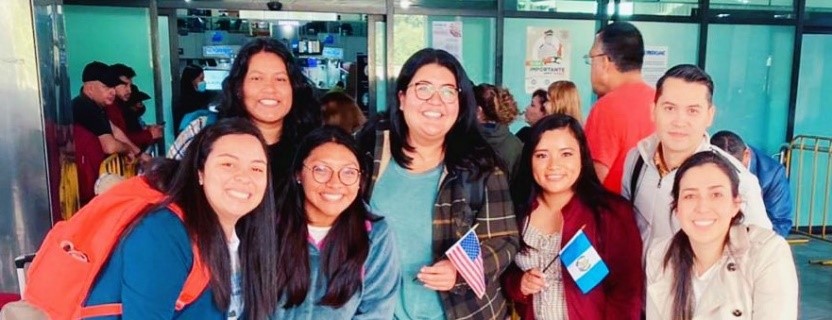
All opinions expressed by the program participants are their own and do not represent nor reflect official views from the Bureau of Educational and Cultural Affairs of the U.S. Department of State, or of the Institute for Training and Development, Inc.

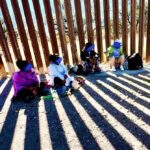
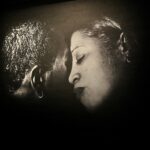

A wonderful perspective on the community of Tucson, Arizona, and the sense that we are collaborating together in kindness to address this complex and challenging situation.